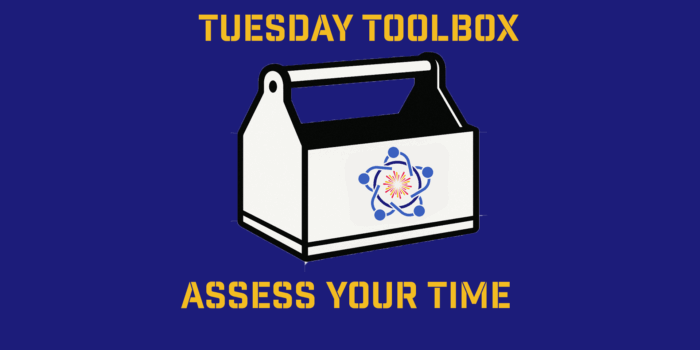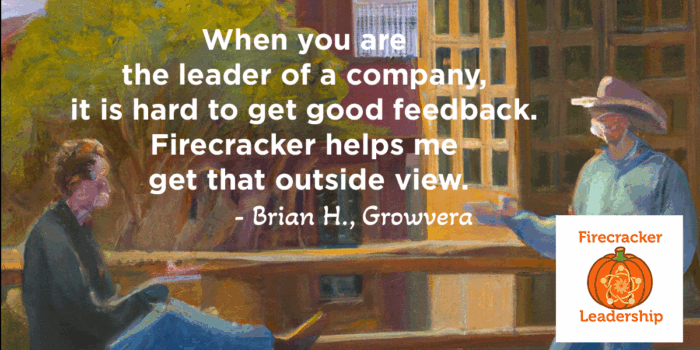What hasn’t happened this year that needs to? Would getting clarity help?
How NOT to have a performance conversation.
For a lot of business owners, managing a team is one of the hardest but most rewarding parts of the job. If handled properly, you can grow your business and experience a level of growth and freedom that your competition can’t. But if done improperly, it can really hurt your business and your ability to service your customers. So today I want to share some tips on how to have an adult conversation with an employee that isn’t meeting expectations.
Setting the Scene
For our example today, we are going to discuss how to approach somebody who’s had chronically subpar behavior. In our example here, we have Tina, who has been a team member of yours for some time. But she consistently misses deadlines or drops deliverables or just doesn’t perform up to standard. Until now, you’ve commented on this here and there, but you have not directly addressed it with Tina. So it’s time to have a sit-down discussion about her performance and where she needs to look at improving.
Your Emotional State
Before you call her into your office, there are a few things that you need to think through. Taking a few minutes beforehand to lay out a plan of attack can not only make the interaction more productive for both parties but can also help protect the relationship you have with Tina now and in the future.
Let’s talk about what these are first. Number one, you need to time your conversations so that you are at your best, which means that you might delay for an hour or for a day or two until you really are in the right frame of mind to have that. Are you hungry? Tired? Stressed? Postpone the meeting to a different time.
Second, you need to know very clearly before you go into that conversation what specifically it is that you want to accomplish. Are you looking to change a behavior? Are you looking for an explanation? Go into the conversation with a clear goal in mind.
The third point involves a little bit of roleplaying. Spend a few minutes gaming out the likely outcomes and pre-plan your responses. You don’t necessarily have to follow your plan in every specific instance, but you’ve thought it through and you’ve worked it in advance. We call that gaming it out.
Start With the Observed Behavior Approach
Once you are in a good emotional state and have thought through the conversation, it’s time to bring Tina in for a discussion. Now keep in mind she has been with the company for a while, and this may be one of the first times this issue has been addressed. So, going from a place of behavioral patterns is a good neutral ground to start with. You want to focus on observed behavior, not on that she’s a bad person or to blame. Which would look a little something like this:
Tina, I observe that you’ve missed multiple deadlines over time. In fact, if I look at just the last 30 days, you missed the deadline on the Sorenson project by over a week, and you dropped two of the deliverables that were on the project path that you just didn’t do. Now, the impact of that meant that we were immediately disqualified from consideration for the Sorenson project, and that was a project that could have brought in anywhere from half a million to three-quarters of a million dollars of revenue over the next 24 months. It’s a big deal. It hurt us there. Plus, we were referred into that situation by an outside party, and that burns our credibility with that person. I’m letting you know this is simply not OK, and it must be different than that going forward. In the future, what I need to see is that you follow all the steps of a project proposal in your role as a sales support admin, and if you miss something there, I expect that you’ll catch it because you’re following the checklist we set up for the team. Are we in agreement on this here?
I started off by talking about what I observed. Here was the negative impact of what you did, either on the company or on individuals. And then I tell the person: that’s not OK. And then I follow up with what we are going to do moving forward. And lastly, I make sure that we are in agreement on the path forward. We keep the personalities out of it as best we can and focus on the observed behavior, the impact, the fact that that is not OK, and then we ask clearly for what we want. And then we check with them to make sure that everyone is on the same page.
BY DAVID FINKEL, CO-AUTHOR OF ‘SCALE: SEVEN PROVEN PRINCIPLES TO GROW YOUR BUSINESS AND GET YOUR LIFE BACK’
While the title of this article is How to have an adult conversation, I would say it’s a great example of how NOT to have a conversation.
Tina is going to feel attacked and that the boss is only for themselves. While the stakes are high, and since Tina has been on the team for awhile, I’m going to assume that she has been performing well until this. Besides using the tool I shared on Tuesday (https://wp.me/pdByxL-gH) the boss can call her up: “It is really important that you meet the deadlines we agreed upon and the team is available to help you succeed. Your past performance has shown me that you can do this, but let me know if you hit roadblocks so we can address them in a timely manner.” If the boss needs to go into specifics about the deadlines, that is fine. But before that, I think the boss needs to assess if the assignment was clear and if Tina accepted her role in it. When it was assigned, did Tina say out loud, “I will get X done by X day and use the checklist to make sure I don’t miss a step.”? If not, I don’t know what Tina heard and thinks is expected. So if the boss can ask “what do you understand is the assignment?” And suggest that if there is something that gets in the way of completing it in the time agreed upon, Tina will come with some recommendations on ways to either address the challenge or change the timeline or reprioritize projects if possible. I can understand the feeling that we need to be really direct when we are confronting performance issues, and have done things similar to what this article suggests, but you’ll engage your team and get more done if you use the approach I’m suggesting.
I encourage you to think about the relationships, what you are trying to accomplish, how you want to be experienced, and what you want long term when you are having these conversations.



